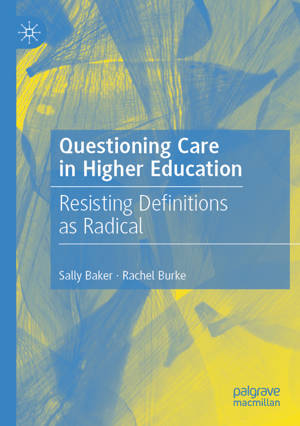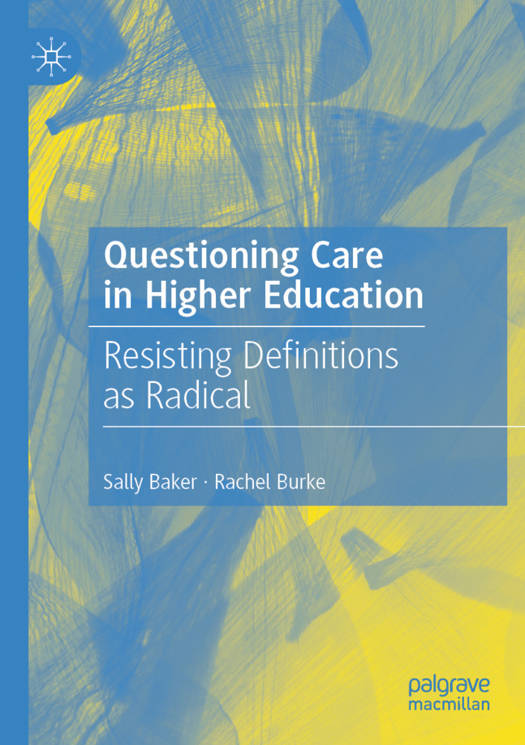
- Afhalen na 1 uur in een winkel met voorraad
- Gratis thuislevering in België vanaf € 30
- Ruim aanbod met 7 miljoen producten
- Afhalen na 1 uur in een winkel met voorraad
- Gratis thuislevering in België vanaf € 30
- Ruim aanbod met 7 miljoen producten
Zoeken
Questioning Care in Higher Education
Resisting Definitions as Radical
Sally Baker, Rachel Burke
Paperback | Engels
€ 137,45
+ 274 punten
Uitvoering
Omschrijving
This book explores questions of care in higher education. Using Joan Tronto's seven signs that institutions are not caring well, the authors examine whether students and staff consider universities to be caring institutions. As such, they outline how universities systematically, structurally, and actively 'undercare' when it comes to supporting students and staff, a phenomenon which was amplified by the COVID-19 pandemic. Drawing on scholarly ideas from the sociology of care, higher education, social justice, and feminist critique, and in dialogue with empirical insights gathered with people who work and study in universities in Australia, South Africa, and the UK, the book questions why people care, as well as why adopting a caring position in higher education can be viewed as radical. The authors conclude by asking what we can do to counter that view by thinking carefully about the purpose, power, and plurality of care, before imagining how we can create more caring universities.
Specificaties
Betrokkenen
- Auteur(s):
- Uitgeverij:
Inhoud
- Aantal bladzijden:
- 284
- Taal:
- Engels
Eigenschappen
- Productcode (EAN):
- 9783031418310
- Verschijningsdatum:
- 29/09/2024
- Uitvoering:
- Paperback
- Formaat:
- Trade paperback (VS)
- Afmetingen:
- 148 mm x 210 mm
- Gewicht:
- 396 g

Alleen bij Standaard Boekhandel
+ 274 punten op je klantenkaart van Standaard Boekhandel
Beoordelingen
We publiceren alleen reviews die voldoen aan de voorwaarden voor reviews. Bekijk onze voorwaarden voor reviews.











